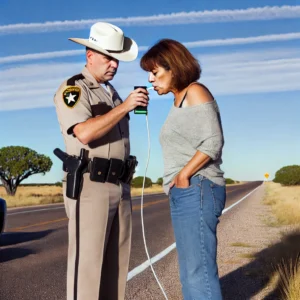“Defending Women Charged with a DWI in Texas: Navigating the unique challenges women face in DWI defense in Texas and understanding gender-specific legal strategies when facing a DWI arrest in Texas.”
As a DWI defense attorney in Texas, I’ve seen a significant rise in the number of women arrested for DWI over the years. Unfortunately, defending women in these cases comes with unique challenges due to physiological factors that can make it more difficult for a woman to defend herself against a DWI charge in Texas.
Defending women accused of DWI is often more complex because there are various defense strategies that must be tailored to address these differences. For instance, breath testing instruments are typically calibrated based on male physiology, which can lead to inaccuracies when used on women. This lack of consideration for how women metabolize alcohol creates numerous potential issues that can be contested in court.
Women face additional hurdles when asked by a police officer to perform field sobriety tests (FSTs) or submit to breath, blood, or urine tests. For example, many breathalyzer machines tend to give higher readings for women because they are primarily calibrated for men. This discrepancy means that if a woman had taken a blood test instead of a breath test, her blood alcohol concentration (BAC) might have been significantly lower than what the breath test indicated.
Another challenge women face during DWI arrests is that the majority of arresting officers are male. During late-night traffic stops, especially on dark or isolated roads, it’s understandable that women might feel nervous about performing roadside tests. This hesitation can be misinterpreted as a refusal to cooperate or even as an indication of guilt.
Women and Breath Testing in Texas
 Expert testimony has consistently shown that women are often disadvantaged by inaccurate results from breathalyzer tests. Studies have demonstrated that many breath testing devices don’t accurately calculate female alcohol levels, leading to potentially false or inflated BAC readings for women.
Expert testimony has consistently shown that women are often disadvantaged by inaccurate results from breathalyzer tests. Studies have demonstrated that many breath testing devices don’t accurately calculate female alcohol levels, leading to potentially false or inflated BAC readings for women.
Several breath testing machines have been criticized for not accurately reading a woman’s BAC level due to their calibration and design, which are often based on male physiology. Some of the commonly used machines include:
- Intoxilyzer 5000 and 8000: These machines, widely used across the United States, have been known to produce inaccurate BAC readings for women. The technology in these devices was developed with a standard lung capacity assumption that doesn’t account for differences between men and women.
- Alco-Sensor IV: This device, often used in the field by law enforcement officers, also faces criticism for similar reasons. It assumes a uniform breath volume and alcohol partition ratio that may not accurately reflect a woman’s physiology.
- BAC DataMaster: While effective in many cases, the BAC DataMaster has also been found to potentially overestimate BAC levels in women due to its calibration, which is not specifically adjusted for gender differences.
- Dräger Alcotest 7110: This device is used in some jurisdictions and, like others, has been questioned for its ability to accurately measure BAC in women, as it does not consider differences in body composition and alcohol metabolism between genders.
These machines typically rely on assumptions about average lung capacity, body water content, and alcohol absorption rates that are more representative of male physiology. This can lead to inflated BAC readings for women, making it crucial to question and potentially challenge the results of these tests in court, especially in DWI cases involving female defendants.
Women and Field Sobriety Testing in Texas
The National Highway Traffic Safety Administration has acknowledged the difficulties women face when asked to perform field sobriety tests…
 Field sobriety tests can be particularly challenging for women. These roadside tests are difficult enough on their own, but for women, they can be even more daunting. Women often experience heightened stress during these encounters, which can negatively impact their performance on the tests. This stress, combined with the discomfort of performing these tests in inappropriate footwear or even bare feet, puts women at an immediate disadvantage.
Field sobriety tests can be particularly challenging for women. These roadside tests are difficult enough on their own, but for women, they can be even more daunting. Women often experience heightened stress during these encounters, which can negatively impact their performance on the tests. This stress, combined with the discomfort of performing these tests in inappropriate footwear or even bare feet, puts women at an immediate disadvantage.
The National Highway Traffic Safety Administration has acknowledged the difficulties women face when asked to perform field sobriety tests, yet these challenges are still frequently overlooked during DWI arrests.
Given these issues, it’s crucial for women facing DWI charges in Texas to have a DWI defense attorney who understands these nuances and can effectively challenge the evidence presented against them.
Dunham & Jones DWI Defense Attorneys
If you are a woman who has been charged with a DWI in Texas please call my office at 800-499-8455 and speak with one of my DWI defense attorneys about your DWI arrest before it’s to late. We can explain your options and how we can help you defend your DWI charge. My office has been defending women charged with a DWI in Texas since 1989. We know how to navigate the unique challenges that women face when being charged with a DWI in Texas.
Defending Women Charged with a DWI in Texas. Challenges women Face in DWI Defense in Texas: Understanding the legal strategies women face with a DWI.


